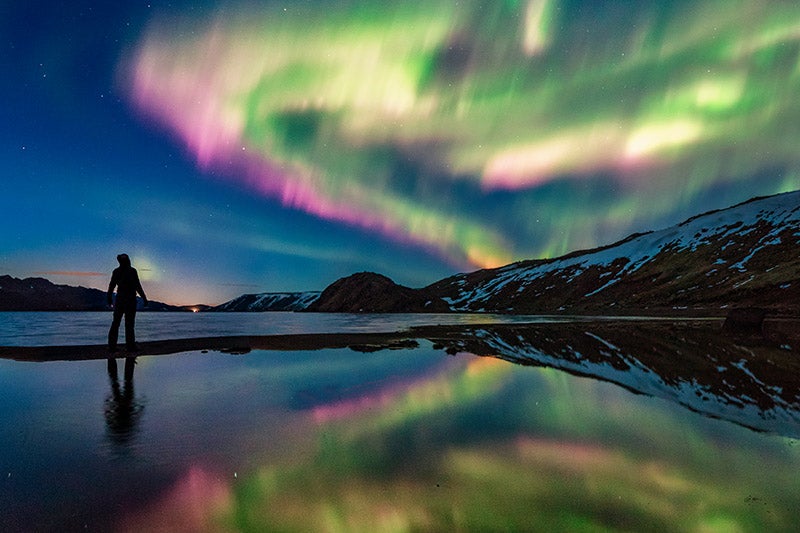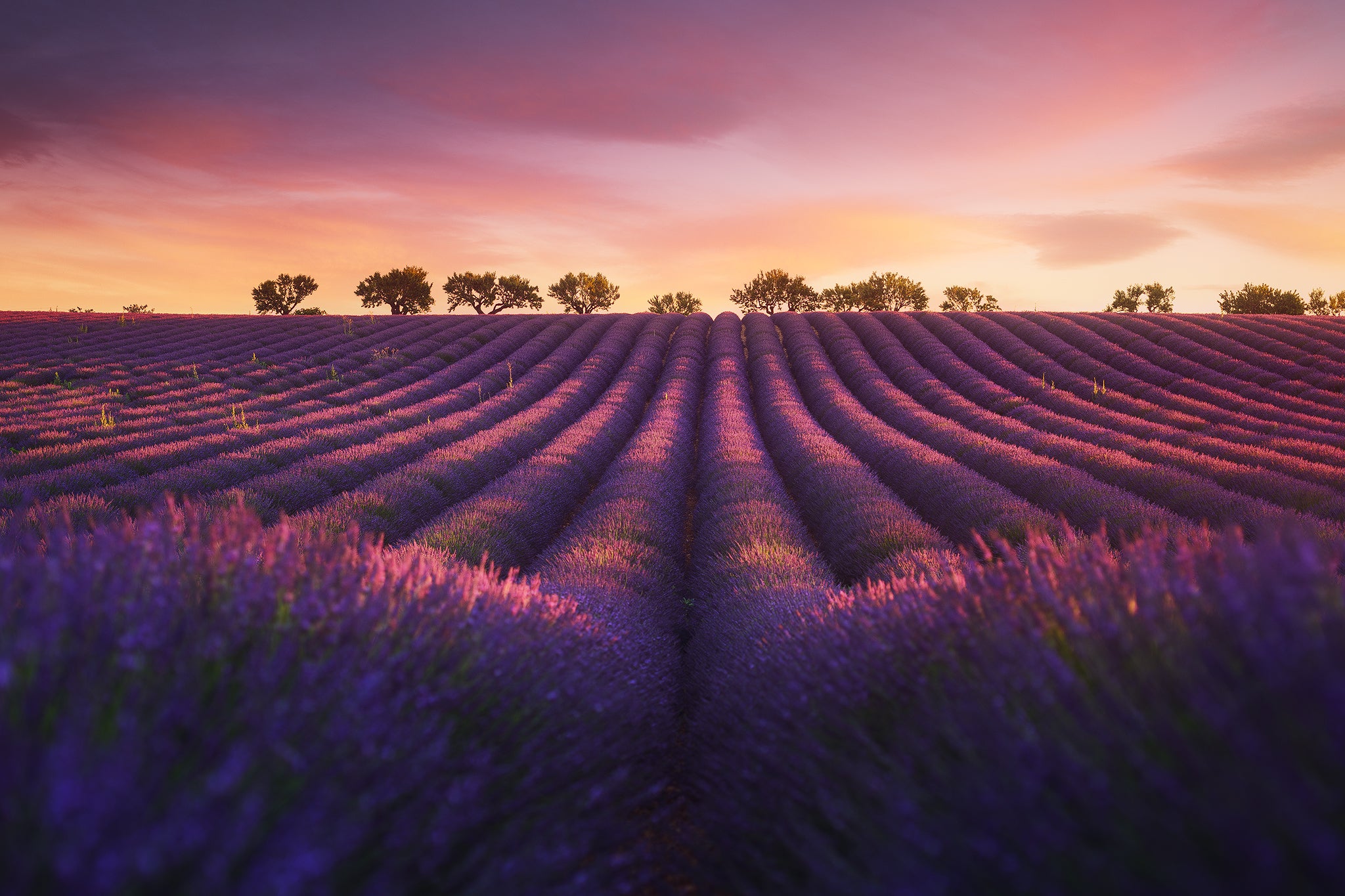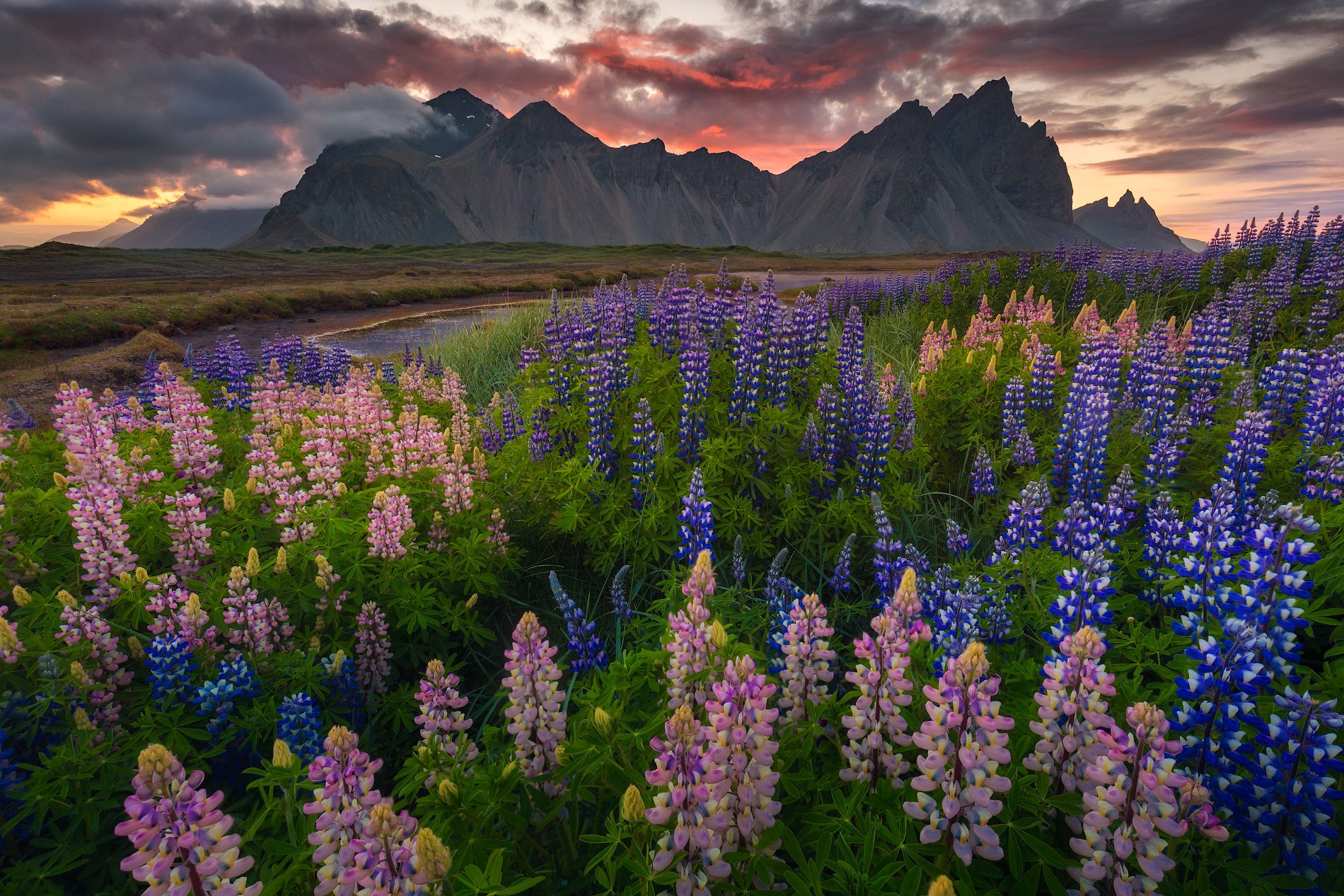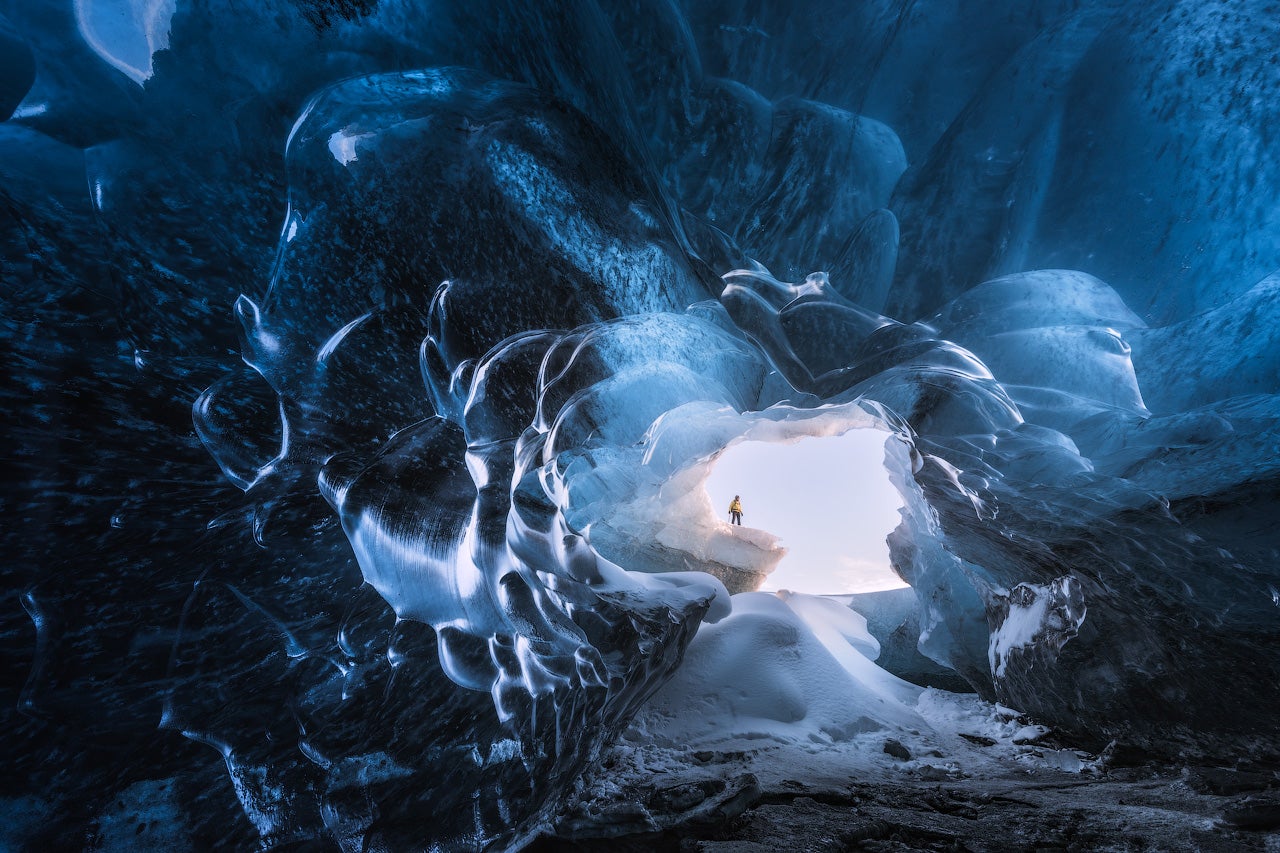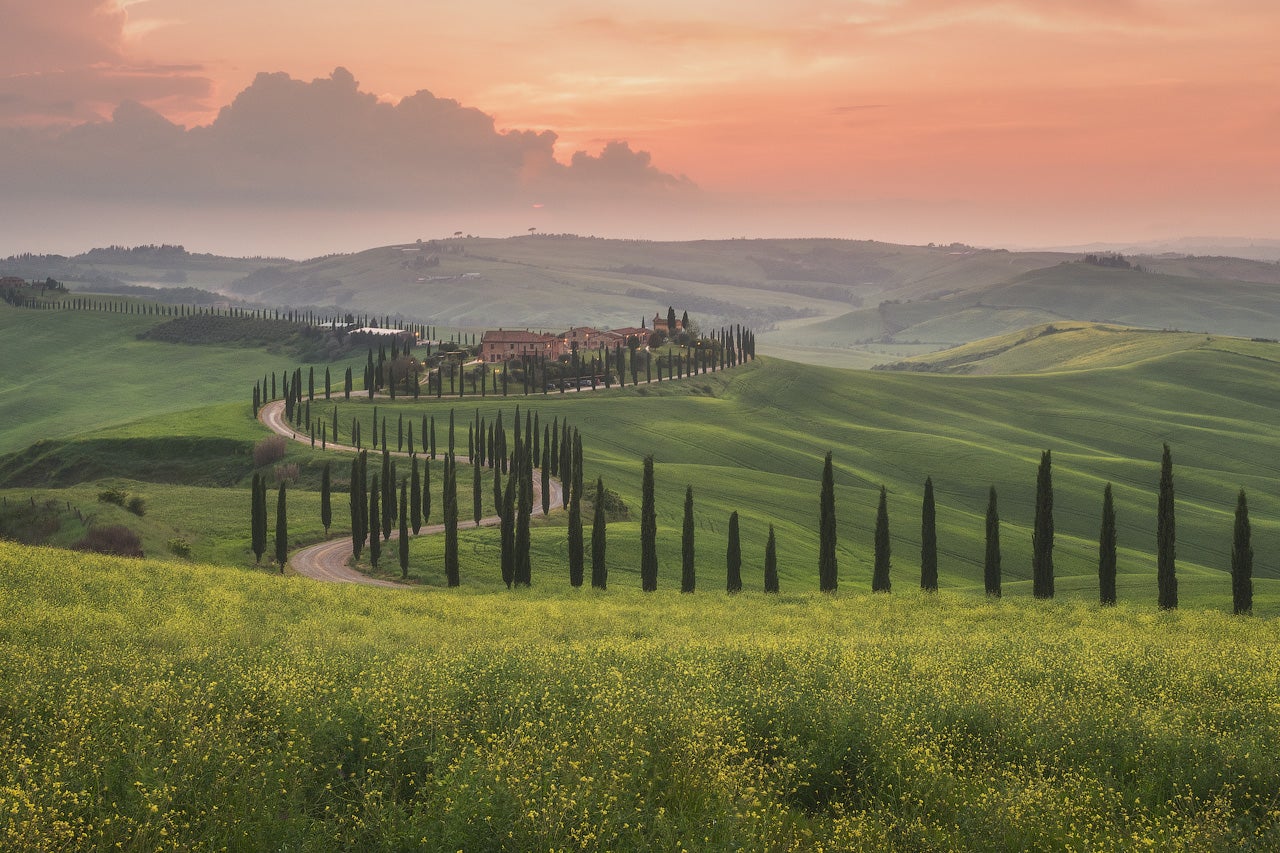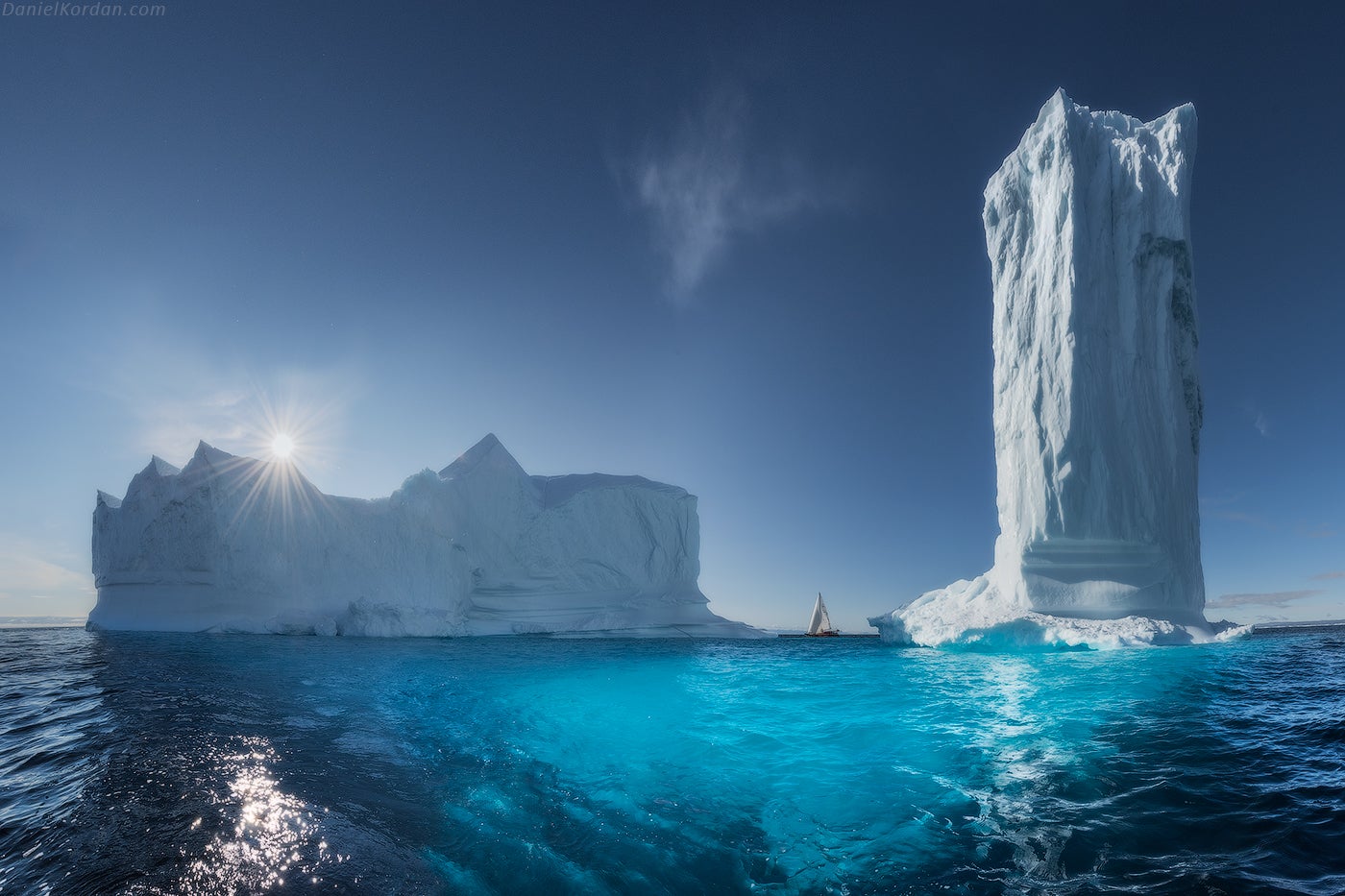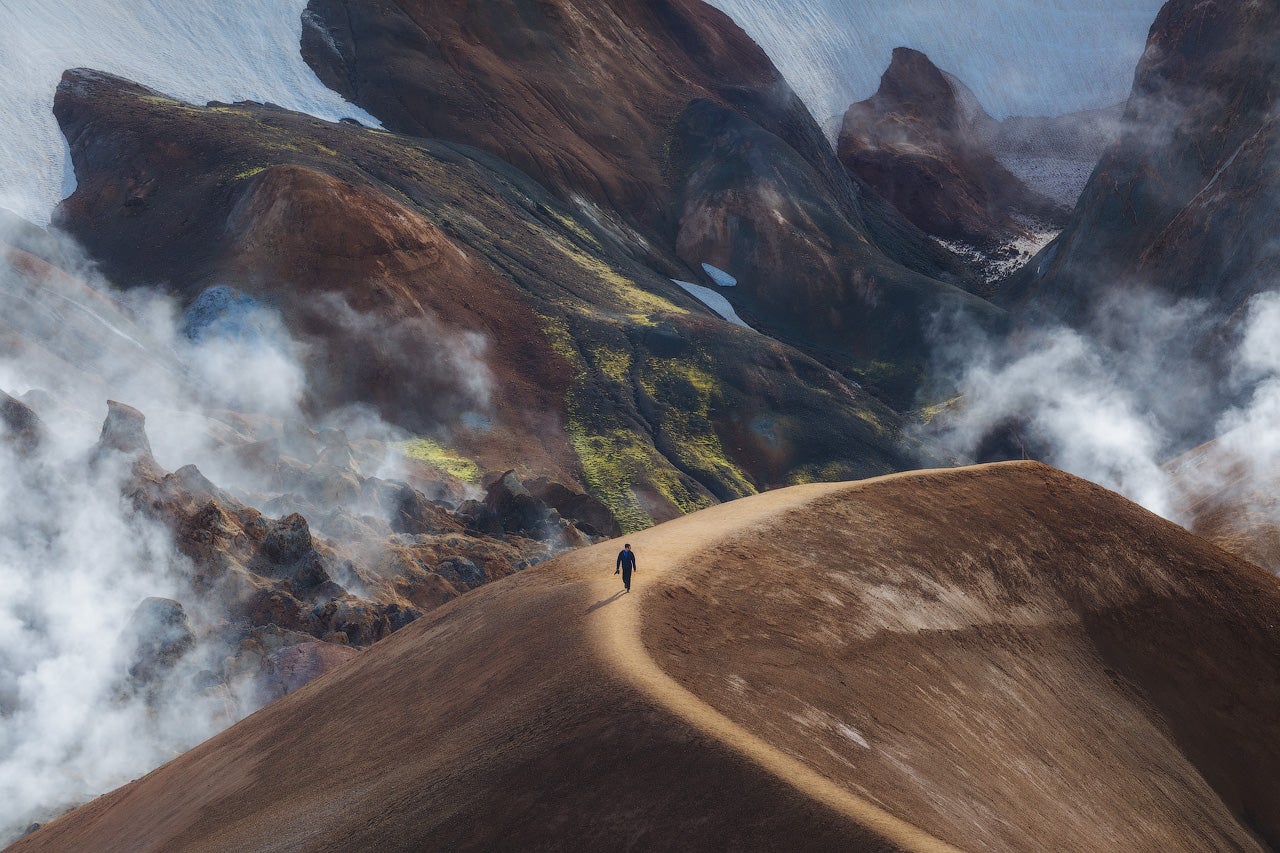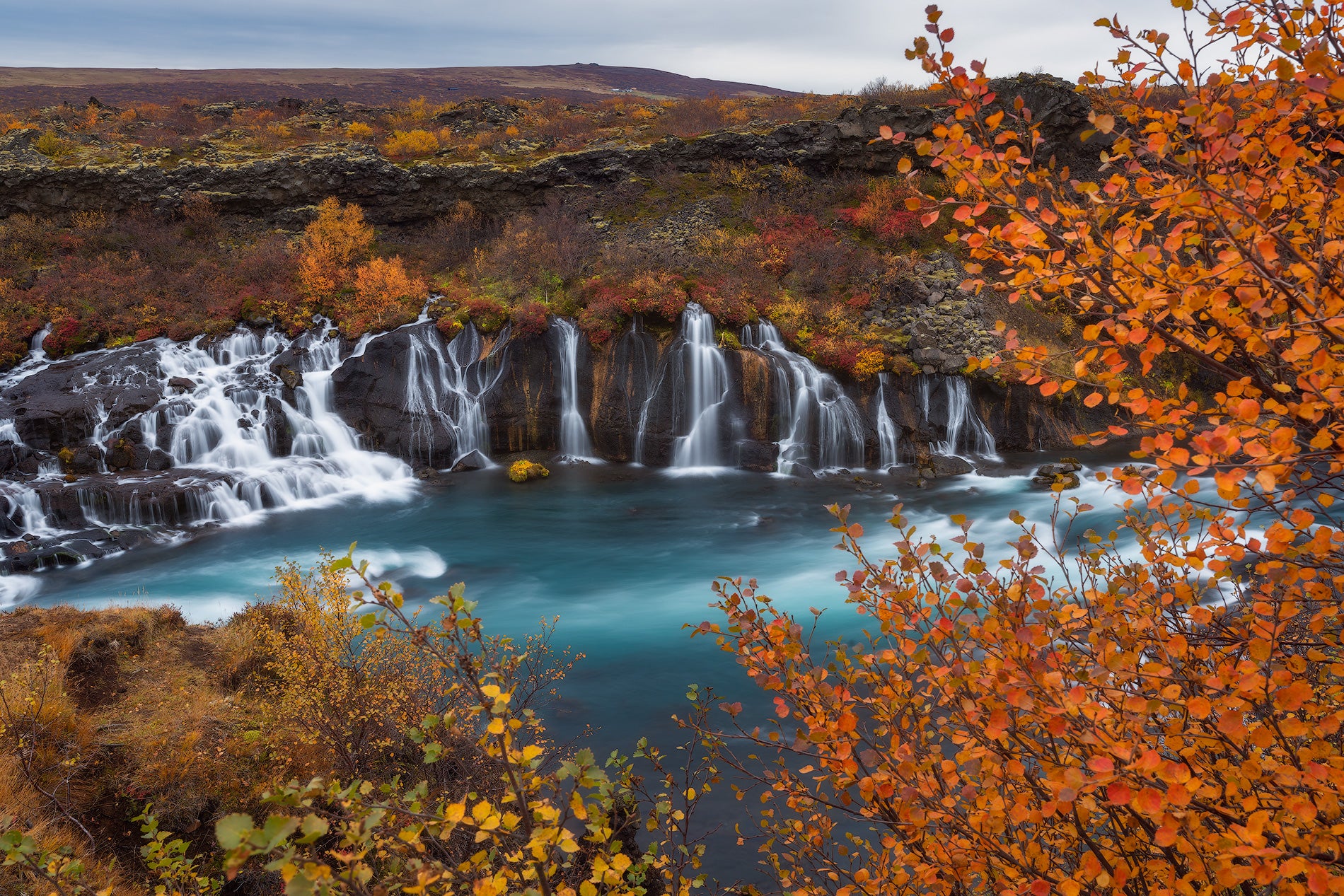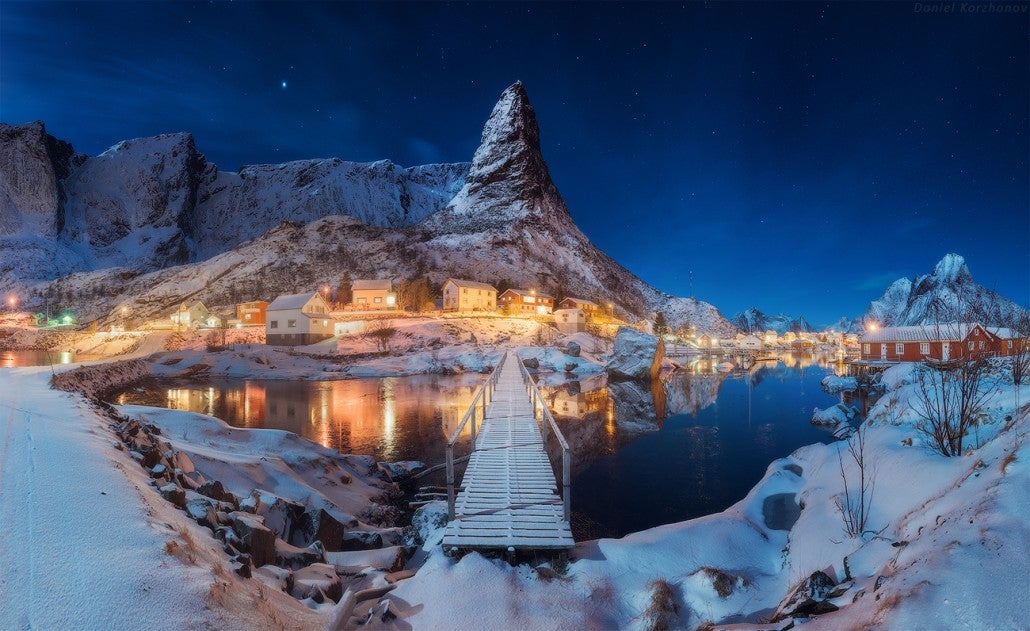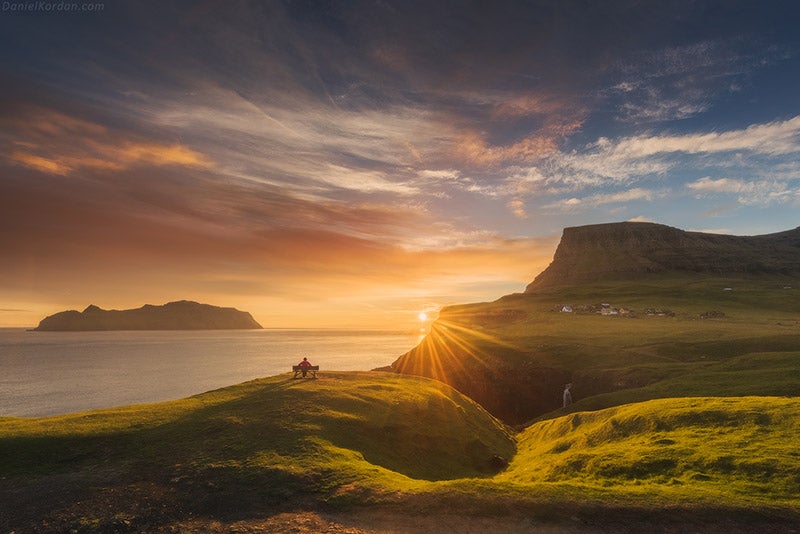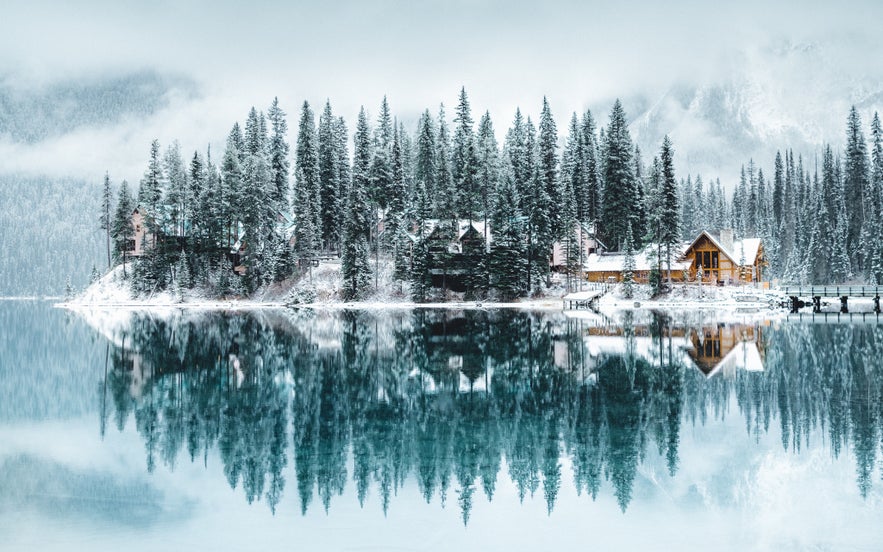
Finding your own style in photography, let alone maintaining uniformity across an entire portfolio, is something that many photographers struggle with. For nature, adventure and lifestyle photographer, Norris Niman, developing a signature style has contributed to his success, bringing out the artistic merit of his work.
- Discover this Arctic Borders | Norway & Sweden Photography Workshop
- Check out these Sweden Photo Tours and Workshops
- Find out Why Iceland is the Perfect Place for Midnight Sun Photography
This intrepid explorer has invested his heart and soul into photography, bringing alive the quiet moments that are often hidden out in nature. We had the honour of chatting with him this week to learn about the inspiration behind his work, his thoughts on capturing emotion and drama, as well as what he has planned for his career in the near future.
 Norris Niman is a Swedish / Hungarian nature, adventure and lifestyle photographer. Photo by: 'Norris Niman'.
Norris Niman is a Swedish / Hungarian nature, adventure and lifestyle photographer. Photo by: 'Norris Niman'.
Hello Norris! Thanks for joining us. Tell us a little bit about yourself – where is home and what inspired you to become a professional nature, adventure and lifestyle photographer?
Hey there! I’m a Swedish / Hungarian photographer running around the world, staying wherever it may have me. I’m currently laying low in Sweden, planning my move back to Iceland where it all started once.
 Photography is an art form which sets Norris free. Photo by: 'Norris Niman'.
Photography is an art form which sets Norris free. Photo by: 'Norris Niman'.
It took a long time for me to realise that photography was the art form I would need to set myself free. When I was younger, I used to dream about becoming a rockstar to be able to create something epic and show it off to the rest of the world, but I never got good enough to get there. Instead, photography is what found me. With it, I can portray the world the way I see it, not necessarily going for realism but more for the playful impact that a subject can have on its surroundings.
- See also: What is Landscape Photography?
What has been the best source of information for you along your photography journey so far?
Other photographers. Definitely! Social media has of course helped me, as millions of others, to reach a wider audience, but what I’m forever grateful for is how it has brought us together and how it’s kickstarted all these communities of photographers where you can always reach out for tips, ideas and help from others. That’s how I ended up meeting a lot of other creatives, got friends for life, and it’s how I’ve learned most of the skill I’ve incorporated into my photography today.
 The work of other photographers can be a great source of inspiration. Photo by: 'Norris Niman'.
The work of other photographers can be a great source of inspiration. Photo by: 'Norris Niman'.
What were some of the real turning points in your career?
Did I mention I moved to Iceland? That’s when it all changed for me. I was only going for six months in 2015 but ended up staying for three years. I used to not even like nature. I was studying myself towards a solid career at an office desk, designing apps, living in a Stockholm apartment and watching movies on the weekends. When I moved to Iceland it wasn’t even for photography, but for a scuba diving job a friend texted me about. Of course I brought a camera, and when I started shooting on days off I got that driving feel that told me I could always get a little bit better shots if I just went a little higher up. Until I was on a mountaintop.
 Norris is inspired by the mountains. Photo by: 'Norris Niman'.
Norris is inspired by the mountains. Photo by: 'Norris Niman'.
- See also: Private Tours in Iceland
You have a history of working as a glacier guide. How did you get started doing this and whereabouts did you first learn the ropes? What steps did you take to merge this passion with photography in a meaningful way?
Actually, it was all because I got fired from scuba diving haha. Having had a massive falling out with my scuba-boss, the tour company still wanted to keep me so they put me on training on Vatnajökull to become a glacier guide. I instantly loved it and that was when I really grew a passion for nature. Only having known how to float and how to sink, this taught me how to survive on the back of an ice sheet.
 Norris has an affinity with glaciers. Photo by: 'Norris Niman'.
Norris has an affinity with glaciers. Photo by: 'Norris Niman'.
I still feel most home when shooting glaciers. It’s their ever-changing nature that creates opportunities that are forever unique. A bit like these photo-famous landscapes that every photographer has snapped at some point of their career, except you’re the only one who has, and it can never be re-created.
 Glaciers are dynamic places to shoot. Photo by: 'Norris Niman'.
Glaciers are dynamic places to shoot. Photo by: 'Norris Niman'.
On your website is a very diverse portfolio of wildlife, landscape and even abstract photographs, from beautiful locations all around the world. In the beginning, what was the goal behind your work? Have you achieved what you set out to achieve or have your aspirations changed?
Haha yeah, I guess I’ve been shooting in quite a few different fields while looking for what I ultimately want. In the beginning, it was all about these moody abstract landscape shots where you couldn’t really tell what was portrayed, just that the photographer probably got really wet. After a while though, I felt like I mastered that formula and it all started to feel too monotonous. So I moved from Iceland, started travelling and went out to see what else I could shoot. That’s when a whole new world opened up. Now I try to keep my style consistent while applying it to different areas of photography. It’s a massively rewarding feeling when people recognise my photos based on style, not the subject. And that’s what I’m really trying to achieve.
 Norris tries to keep his style consistent, no matter where he is shooting. Photo by: 'Norris Niman'.
Norris tries to keep his style consistent, no matter where he is shooting. Photo by: 'Norris Niman'.
How does your experience capturing nature and human interactions within it affect the lives of others? What do you hope your audience will gain from your adventures? If your images have a message, what is it you would say they communicate?
Well simply said, I want to inspire. I want to show off this unique world that many might see as hostile. There is this fear of the unknown that holds a lot of us back and that keeps us at home where we’re safe and inside our comfort zone. But what I’m hoping to convey with my photos is that these places, experiences and locations are completely ok to explore for anyone who just dares to go. And it’s even home to some people. So shedding a little light on the harmony between nature and humans, I hope that it brings us closer to the wild and motivates people to go out and see more of it. Even if it’s just the forest in your own backyard. And I also want to show that you don’t have to take it all too seriously either to do all this.
 Norris hopes that his photography will help bring people closer to nature. Photo by: 'Norris Niman'.
Norris hopes that his photography will help bring people closer to nature. Photo by: 'Norris Niman'.
- See also: Ultimate Guide to Forest Photography
Tell us about the work that goes into your panoramas. What kind of equipment do you use? Do you have any suggestions for how our readers may learn to capture a panorama the way that you do?
I actually started shooting panoramas because I didn’t have a wide enough lens to fit all the landscapes in. Hiking and trekking a lot, I try to minimise the amount of gear I use, so I mainly bring a 24-70mm f2.8 lens with me. When I can’t fit what I want, I usually shoot a 6-12 shot panorama (manual focused and in manual mode to keep the settings aligned), to later stitch it together in Lightroom or (rarely) Photoshop. It’s super simple really and the stitching process is mainly automated. It results in these gigantic photos resolution wise, that can be printed on entire walls, buses or buildings.
 Norris usually shoots a 6-12 shot panorama. Photo by: 'Norris Niman'.
Norris usually shoots a 6-12 shot panorama. Photo by: 'Norris Niman'.
This is also how I do most of my drone shots these days. Since the resolution of my Mavic 2 Pro isn’t fantastic for high quality printing, I tend to fly closer to my landscapes and shoot panos instead.
- See also: Ultimate Guide to Panorama Photography
One thing that really stands out about your work is the enchanting use of colour theory. Talk us through your post-processing workflow. How do you achieve that almost fairytale-like look to your images? Is it difficult to keep things consistent as you progress from working on one image to the next?
I’ve sat countless hours in front of the computer trying to refine my editing style and usually once every six months I feel like I’ve got it. Then I go back and change it all around again. What I stick to strictly is to simplify images. What I see when I shoot is often different from what the camera captures, so in editing, I try to remove as much of the distraction as possible to make a subject, emotion, mood or a story really stand out. It starts with simplifying the colour scheme down to a few leading colours, removing the rest or unifying them, and then finding what else I can use to complement those. This usually results in two or three main colours that I base my photo around.
 Norris is consistently trying to refine his editing style. Photo by: 'Norris Niman'.
Norris is consistently trying to refine his editing style. Photo by: 'Norris Niman'.
Keeping this style has been particularly tricky when moving base and shooting in different parts of the world, since all these locations have their own colour palettes. I know a lot of people who wouldn’t shoot a certain landscape because it doesn’t fit their style, but instead, I try to just bend it to my own and tame it in post-processing. There’s never a bad location, time of day or season to take a photo. It’s just what you do with it.
 Maintaining his style across photographs can be tricky, especially when shooting in different environments. Photo by: 'Norris Niman'.
Maintaining his style across photographs can be tricky, especially when shooting in different environments. Photo by: 'Norris Niman'.
The emotion and drama that you capture in your portraits of people and wildlife is beautifully cinematic. How closely do you direct these shoots, as opposed to just letting the action unfold in front of you? What kind of planning goes into taking shots like these? Is there a secret to the cinematic effect in post-processing?
I usually spend days before a shoot planning exactly what I want, just to throw it out the door when the time actually comes. No matter how much preparation goes into a shot, it’s all up to what nature offers in the moments. Early on in my photography, I often went out for a specific angle, pose, light and props but soon realising that it’s usually the shots that you don’t plan that make the cover. It’s the chemistry between the person and its environment, the ever-changing weather conditions and the opportunities that arise on the spot that can really define a photo, and that’s what is worth going for. Landscapes can be an easy target because they stay put, and you can plan to shoot it a certain season on a certain day at a certain time to hopefully get exactly what you want but even there, there’s more emotion in capturing the unexpected. Planning is still key to know the potential of what you could create, but trying to go beyond that and achieving something more has a massive payoff.
 Capturing the emotion of the unexpected. Photo by: 'Norris Niman'.
Capturing the emotion of the unexpected. Photo by: 'Norris Niman'.
You’ve collaborated closely with a number of well-known adventure, tourism and lifestyle brands throughout your photography career. Which assignment has been the most interesting or challenging for you so far? Where would you like to see these collaborations going in the future and is there a brand that you would love to work with?
The most challenging projects are often the ones where you have to make something look special even though it’s not. That also makes it a lot of fun and tests one’s abilities to make more out of less and find emotionally binding compositions where you really have to search for one.
 Each of us has their own challenges in photography. Photo by: 'Norris Niman'.
Each of us has their own challenges in photography. Photo by: 'Norris Niman'.
For a confidence boost though, it’s great when it’s all already aligned to look great. I went to Utah in December last year to shoot sand buggies roaring through the desert. I’ve never really worked with an orange backdrop before, so I had a lot of fun editing that session and to try to make the desert really take over the scene. Also, those buggies are probably the best toy a grown-up can get!
- See also: Ultimate Guide to Desert Photography
In recent years, there has been increasing conversation around the impact of tourism generated by social media. How do you mitigate the effects of human interaction with wildlife and the environment when you are out on your shoots, particularly when you are visiting well-known places?
It’s a hard line to walk. On one side, you want to inspire people to travel and experience the world. On the other though, you want these locations well preserved and not destroyed by others who just have to get that shot no matter what. I know this is a big issue in Iceland and I can feel how social media is really a driving force behind it. Thankfully, I feel like the community has started correcting itself these days and it has become less acceptable to post photos online where nature has been harmed in the process. I have seen first hand how tourism is destroying nature though, so I don’t disclose the exact locations of my photos unless I know there is a safe way to take it without leaving a trace.
Also, please don’t walk on the moss.
 It's a fine line between photographing and protecting nature. Photo by: 'Norris Niman'.
It's a fine line between photographing and protecting nature. Photo by: 'Norris Niman'.
These days, more and more young people are expressing themselves through photography. Do you have any advice or thoughts on how they can make their presence felt?
Get together! One of the big mistakes I’ve done in the past is trying to go at it alone, feeling like no one will really get what I want anyway. And it’s been a struggle. So go out and find other photographers in your area, or find them online and reach out to them! See if they’d like to go for a shoot, pitch an idea or join them on theirs and you’ll see just how much you will grow as a photographer. Even if not in likes. Real likes are better anyway.
 It's a good idea to band together for photography. Photo by: 'Norris Niman'.
It's a good idea to band together for photography. Photo by: 'Norris Niman'.
And if you want to grow an audience, it’s not easy these days, but start locally! Try to get more known in your area before you get known in the world. Ask your local library if you can exhibit your photos there, ask local companies if you can shoot for them, sell printed photos to friends (and your mom) and gain the love of your local crowd. A few fans close to home will feel like a lot more than thousands of unknown accounts that are semi-interested in what you post on Instagram. The perk of having a big following though is that you can probably get free water bottles and phone cases.
One thing that comes up for a lot of photographers is how the need to document everything during their travels prevents them from being in the moment. How do you balance the creative process with simply enjoying your time, wherever you are?
This is definitely how I was too when I started out. I couldn’t sit down when reaching a shooting location, and this was especially true on mountaintops or during sunsets. I was always running around looking for the best possible angles and shooting manically until everyone else got too cold or the moment blew past. Lately, I’ve learned a lot more about what kind of photo I want out of a scenario and how to get it. So I make sure to start with that when reaching a location, and then I sit back, relax, try to take it all in and try to just be extremely happy and cherish that I get to experience these epic moments and places. That mental photo is worth even more than whatever you have to show for it.
 It's important to cherish the experience. Photo by: 'Norris Niman'.
It's important to cherish the experience. Photo by: 'Norris Niman'.
If this whole “photography career” thing fell through the floor tomorrow, what else could you see yourself doing for a living?
Well, that’s a scenario I’ve thought of a lot lately now since good old COVID-19 came around. Being a travel photographer and an outdoor tour guide is not ideal when tourism is down. But this is the perfect time to work on websites, SEO, network, future plans, scout shooting destinations or get a new skillset. And it’s a great time to work on yourself.
 Now is a good time to work on other aspects of your photography business. Photo by: 'Norris Niman'.
Now is a good time to work on other aspects of your photography business. Photo by: 'Norris Niman'.
If things fell through though, I’d still never stop shooting. This is not just a job but a passion, and if I can make money doing it, that’s a massive bonus. That said, money needs to flow somehow and if I can’t make it with this I’d probably just do dishes in a cafe. Or go back to University. I should have graduated five years ago anyway.
Thank you for sharing your thoughts with us today! As a parting thought, what are you looking forward to most this year? Are there any specific projects that we can expect from you in 2020?
Well the future comes month my month these days, but I’ve just finished shooting a project portraying the amazing landscapes of northern Sweden. I’m so happy that I finally took the chance to explore my own back yard. I mean, last time I was here I didn’t even like nature and now I can’t fill my camera with enough of it.
 Norris has been all over the world but is looking forward to returning to Iceland. Photo by: 'Norris Niman'.
Norris has been all over the world but is looking forward to returning to Iceland. Photo by: 'Norris Niman'.
The most exciting thing for this year is probably me and my partner moving back to Iceland permanently to start building a proper home base there. We’ve been all over the world in the last five years, mostly living out of our backpacks. It’s been an epic journey, but it’s time to semi settle down and have a permanent place to unpack our bags after these long trips. I’ve also got plans to keep on teaching photography and launch a few more photo trips in Iceland for next summer.
Now that I’ve seen the rest, I know there is a lot more to shoot back on the rock. So I hope to see you all there.
For more information on Norris Niman's work, you can visit his website or find him on Instagram.
Learn to master the art of photography as you travel to incredible destinations all around the world! Check out our range of international photo tours and photography workshops.



